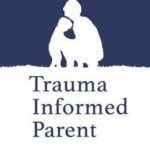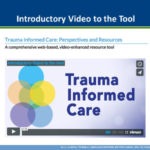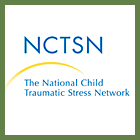ACEs
The Treatment and Services Adaptation Center promotes trauma-informed school systems that provide prevention and early intervention strategies to create supportive and nurturing school environments.
This article, published by ASCD’s Educational Leadership, gives the reader eight trauma-informed teaching strategies.
This resource published by Resilient Educator provides trauma-informed teaching and self-care resources.
In this article published by the National Association of School Psychologists, researchers discuss how trauma affects youth and how it affects their school functioning as well as how schools can use a trauma-informed approach.
Trauma Informed Parent is an educational page offering information, resources, and perspective for parents and caregivers of children, teens, and young adults who have experienced trauma or adverse childhood experiences.
“Trauma Informed Care: Perspectives and Resources” is a comprehensive web-based, video-enhanced resource tool.
This is a presentation about the trauma-informed approaches to classroom management.
The Trauma and Learning Policy Initiative’s (TLPI) mission is to ensure that children traumatized by exposure to family violence and other adverse childhood experiences succeed in school. To accomplish this mission, TLPI engages in a host of advocacy strategies including: providing support to schools to become trauma-sensitive environments; research and report writing; legislative and administrative advocacy for laws, regulations, and policies that support schools to develop trauma-sensitive environments; coalition building; outreach and education; and limited individual case representation in special education where a child’s traumatic experiences are interfacing with his or her disabilities.
This toolkit focuses on intervening early to promote positive mental health, prevent mental health challenges, and address mental health problems to achieve the best possible outcomes.
Peace Over Violence is a nonprofit 501c3, multicultural, community-based and volunteer centered organization dedicated to building healthy relationships, families, and communities free from sexual, domestic, and interpersonal violence. To achieve this mission our agency manages five departments delivering the services of Emergency, Intervention, Prevention, Education, and Advocacy.
This factsheet discusses the nature of trauma, its effects on children and youth, and ways to help your child. By increasing your understanding of trauma, you can help support your child’s healing, your relationship with them, and your family as a whole.
Established by Congress in 2000, the National Child Traumatic Stress Network (NCTSN) brings a singular and comprehensive focus to childhood trauma. NCTSN’s collaboration of frontline providers, researchers, and families is committed to raising the standard of care while increasing access to services. Combining knowledge of child development, expertise in the full range of child traumatic experiences, and dedication to evidence-based practices, the NCTSN changes the course of children’s lives by changing the course of their care.











